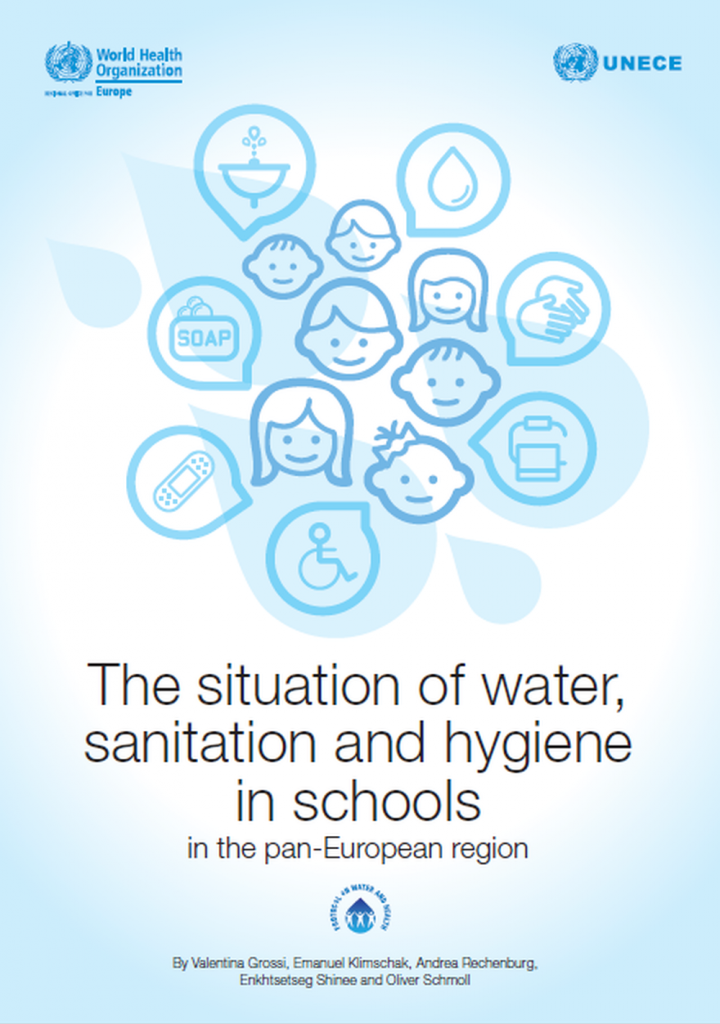The situation of water, sanitation and hygiene in schools in the pan-European region
Grossi, V., et al. (2016)

Published in: 2016
Pages: 84
Publisher:
WHO and UNECE
Author:
Grossi, V., et al.
Uploaded by:
SuSanA Admin
Partner profile:
common upload
4215 Views
17 Downloads
Adequate access to water, hygiene and sanitation (WASH) is every human’s and child’s right. Ensuring WASH accessibility in schools is encompassed in the 2030 Agenda for Sustainable Development and is a priority area under the Protocol on Water and Health to the 1992 Convention on the Protection and Use of Transboundary Watercourses and International Lakes. This publication summarizes the status of WASH in schools in the pan-European region. Available evidence was retrieved from scientific literature, national and international surveys and a desk review of case studies. The data show general progress in WASH policies and targets, but a concurrent lack of translation of this progress into efficient improvement of WASH in schools. Gaps and challenges are found as a result of non-comprehensive standards, inefficient coordination and inadequate surveillance and monitoring indicators. Further, neglected disparities and inequalities are observed through the region. WASH conditions do not reflect policies’ aspirations and are not adequate to pupils’ needs, affecting their health, well-being and performance at school. The main challenges across the region are related in particular to inadequate cleanliness and provision of consumables, as well as maintenance of sanitation facilities and accessibility to safe drinking-water. Policy-making needs to be supported by evidence-based information, especially on neglected topics such as menstrual hygiene management.
Bibliographic information
Grossi, V., et al. (2016). The situation of water, sanitation and hygiene in schools in the pan-European region. WHO and UNECE
Filter tags
English Europe & Central Asia Schools















